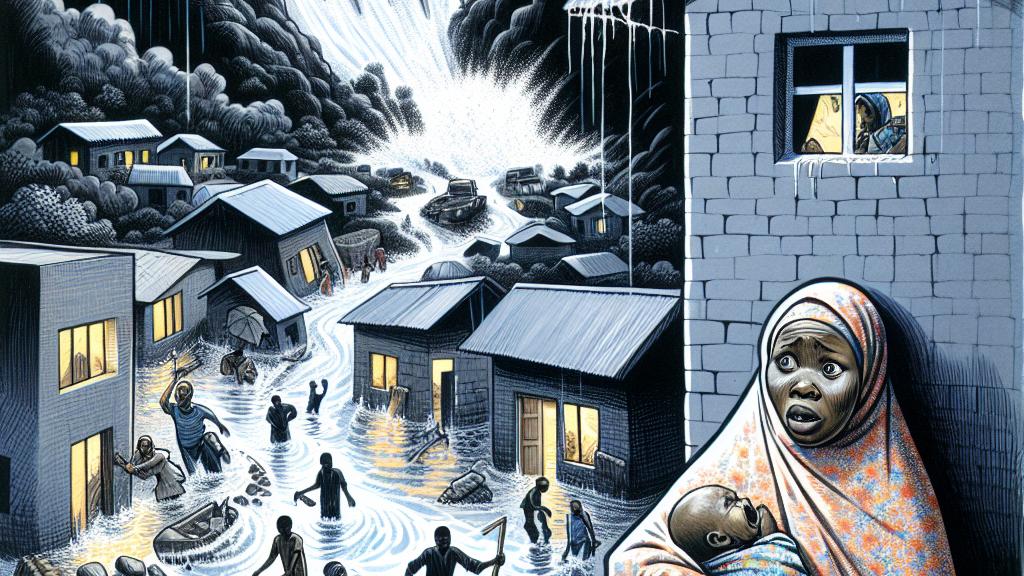Desperation in Maiduguri: Survivors of Alau Dam Collapse Face Hunger and Floods
Overview
- The catastrophic collapse of the Alau Dam in Maiduguri leads to unprecedented flooding.
- Thousands are now homeless, grappling with hunger and health threats.
- Urgent humanitarian responses are needed as the community copes with devastation.

The Catastrophe Unleashed
In the dead of night, a fierce storm raged over Maiduguri, Nigeria, when the Alau Dam—previously a symbol of stability—collapsed under the immense pressure from relentless rains. Residents, deeply asleep and unaware, woke to chaos as water surged into their homes, turning spaces into treacherous rivers. Fatima Yakubu, a mother of six, vividly recalls that terrifying moment: 'When I felt the water on my legs, panic struck me; I thought my children and I wouldn't make it out alive.' Fortunately, brave neighbors rushed in, pulling her family to safety just in time. This tragic event not only ravaged their neighborhood but also marked an alarming spike in the region's recurring flood disasters, which had not reached such catastrophic heights in thirty years.
Humanitarian Crisis in Progress
As the floodwaters receded, they revealed a stark landscape of destruction, leaving a trail of despair in their wake. Shelters, schools, and businesses were consumed by the deluge, pushing thousands to flee to makeshift camps like Bakassi, where conditions are dire. Picture mothers clutching their children closely while navigating murky waters, the smell of damp and decay lingering in the air. In these camps, desperate crowds eagerly converge when aid is delivered, revealing the lengths to which they will go for the scant resources available. 'People are always scrambling for food,' lamented Fatima, who, after losing her home, now shares a single plate of meals with her hungry children. This scene underlines a heartbreaking reality: with each passing day, hope dwindles, and survival becomes a grueling battle.
Health Risks and Future Imperatives
Amidst the wreckage, a looming health crisis waits, threatening the already vulnerable population. Authorities warn that without swift action, outbreaks of waterborne diseases could devastate the community. The collapse of sewage systems coupled with tainted water supplies only exacerbates the outrage. Experts currently emphasize the urgent need for robust disaster prevention strategies. Emphasizing resilience, they argue that Maiduguri must not merely rebuild, but transform itself to withstand future threats posed by climate change. This is not just about relief; it's about restoring dignity and ensuring the safety and wellbeing of future generations. In this defining crisis, the call for sustainable solutions has never been more vital.

Loading...